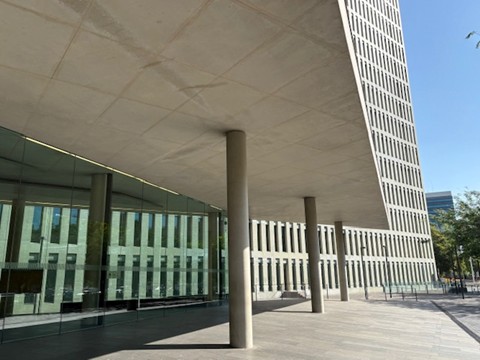
07 Sep Procedural Requirement and ADR in Law 1/2025: a Shared Challenge
Procedural Requirement and ADR in Law 1/2025: a Shared Challenge
“Facilitating the path, respecting the law, supporting the legal profession.”
The new legal framework
One of the major innovations of Organic Law 1/2025 is the obligation to use one of the Alternative Dispute Resolution (ADR) mechanisms before initiating judicial proceedings in civil and commercial matters.
This procedural requirement has sparked debate: on the one hand, it aims to reduce litigation and encourage out-of-court solutions; on the other, many legal practitioners have raised concerns about the additional burden of time, cost, and uncertainty it may entail.
The role of the legal profession
Lawyers now find themselves at a crossroads: they must ensure compliance with the procedural requirement while at the same time protecting the immediate interests of their clients. It is not just a formality: a mistake or divergent interpretation by the courts could put an entire legal strategy at risk.
The reality is that many professionals were already attempting, before going to court, to open avenues for settlement. However, elevating this to the level of a legal requirement raises new questions and demands clear and consistent criteria.
Procedural requirement with rigor and agility
In this context, it is essential that the procedural requirement does not become an obstacle, but rather a swift, serious, and transparent step. Mediation, private conciliation, or assisted negotiation can satisfy the legal requirement while also adding value: spaces for dialogue, creative solutions, and in some cases, agreements that avoid litigation altogether.
A necessary support
In this new scenario, law firms need allies who provide security and confidence in managing the procedural requirement. Having the support of a registered mediator and private conciliator can be of great help in ensuring that the process is carried out with legal rigor and without adding uncertainty to the work of lawyers.
As a mediator and private conciliator, my commitment is to support the legal profession so that this new requirement does not become an obstacle, but a step that is agile, secure, and transparent in the service of their clients.
Looking ahead
Until a uniform criterion is established, access to justice will continue to be marked by uncertainty. The key will be to turn the procedural requirement into what it should be: an opportunity to resolve and not a barrier to litigation when necessary.
Because the procedural requirement should not be a roadblock, but an opportunity to work together for the benefit of those who trust in Justice.
Daniel Sererols Villalón
Tel. 661.463.306
daniel@mediadorconflictos.com
